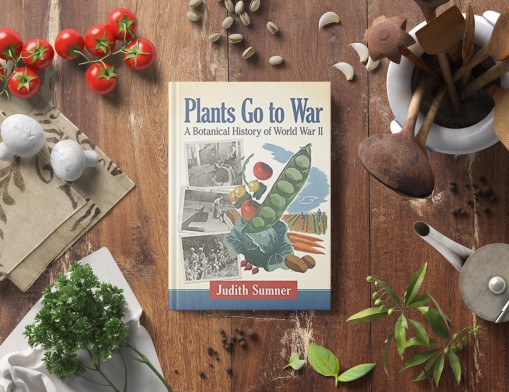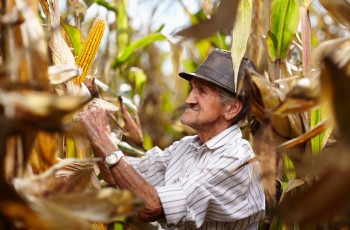How Plants Won the War
By: Sue Stees | Category: Education | Issue: July 2019

The Tulsa Herb Society presents Judith Sumner, author/botanist/historian for a special program, WWII Botany: How Plants won the War Monday, July 8, 2019, at 7 p.m. at the Tulsa Garden Center. Judith’s presentation takes a look at military history from a botanical perspective. From victory gardens and agriculture to rubber, coal, paper, timber, drugs and fibers, plant products supplied the wartime materials that played key roles in the victory.
Her presentation is based on her newest book; PLANTS GO TO WAR, A Botanical History of World War II. Once WWII began in Europe and the Pacific, military needs were vast and complex. Jungle warfare, forest survival, and camouflage techniques all required essential plant knowledge. Food to supply the troops was a particular concern, requiring that Americans and Europeans on the homefront grow and consume many more plant foods. The Victory Gardens in American and England provided the bulk of the wartime diet.
Judith Sumner is a botanist who specializes in ethnobotany, flowering plants, plant adaptations and garden history. She has taught extensively both at the college level and at botanical gardens, including the Arnold Arboretum of Harvard University and Garden in the Woods, the foremost native plant garden of New England. Judith is a graduate of Vassar College and completed graduate studies in botany at the University of Massachusetts at Amherst. She also studied at the Royal Botanic Gardens, Kew, and at the British Museum of Natural History.
Judith has been the lecturer-in-residence at the Star Island Natural History Conference. She has been a guest on the Martha Stewart Living television show, the PBS program, “Cultivating Life” with Sean Conway and has presented many other educational programs throughout the nation.

In 2007, Judith was awarded the Gertrude B. Foster Award for Excellence in Herbal Literature by the Herb Society of America. Her book, American Household Botany won the American Horticultural Society Book Award in 2005. The lecture is free and open to the public.
Subscribe
For Free!



